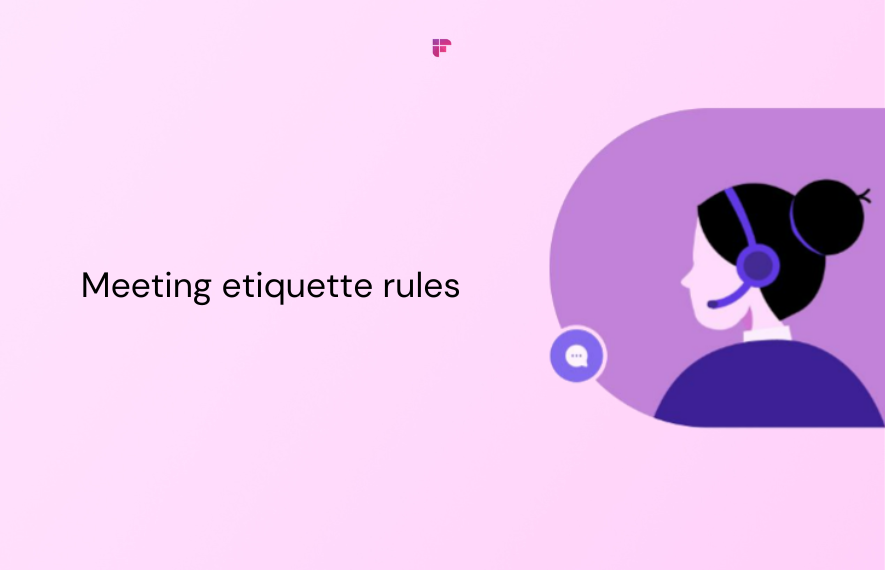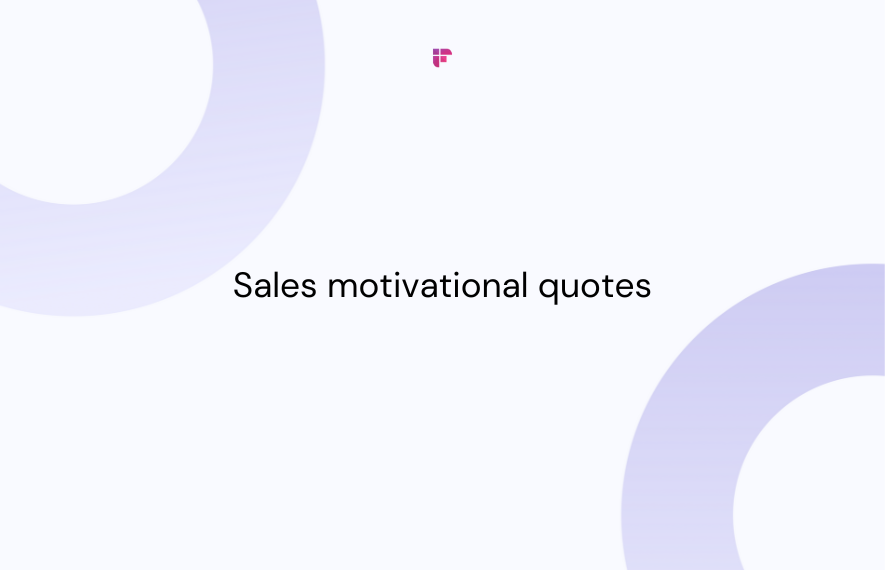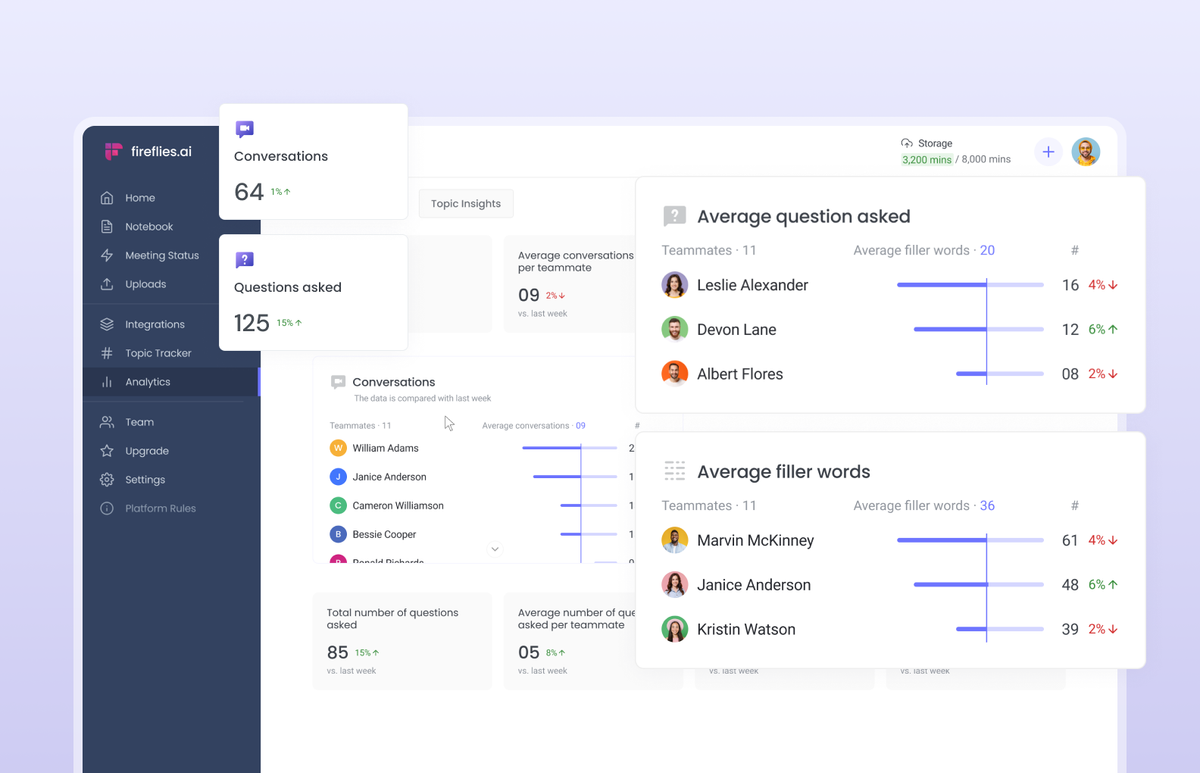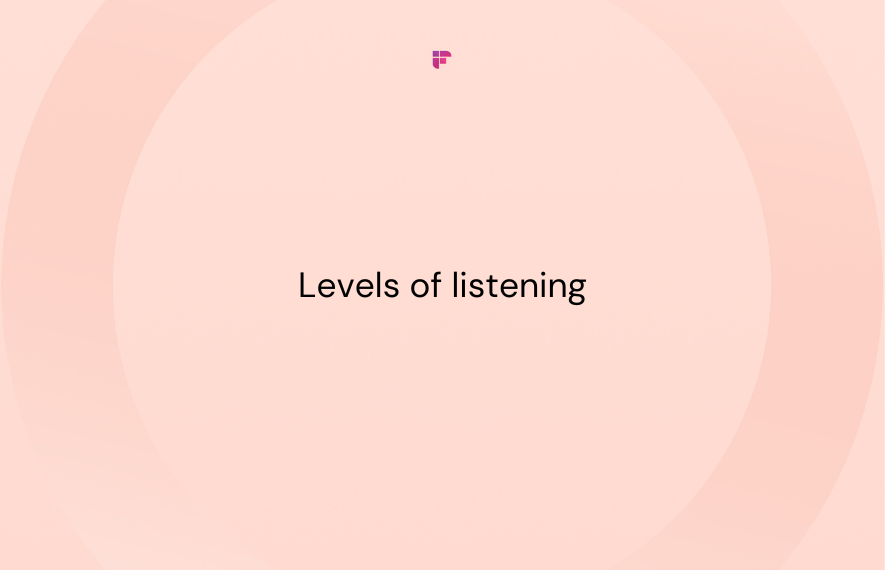Listening is a fundamental part of communication, yet we often struggle to truly listen and be present in conversations. In this blog, we'll explore the 5 levels of listening, its importance in leadership, and how to improve your listening skills.
Read on as we unravel the secrets to becoming a better leader and fostering stronger connections through the art of effective listening.
5 Levels of Listening
"Most people don't listen with the intent to understand; they listen with the intent to reply." – Stephen R. Covey.
Stephen Covey, the renowned American educator, keynote speaker, and author of The 7 Habits of Highly Effective People, emphasized that listening involves more than just hearing words.
He introduced a concept of five distinct levels of listening: ignoring, pretend listening, selective listening, attentive listening, and empathetic listening.
These levels signify how deeply we engage in a conversation.
The 5 levels of listening are:
- Ignoring
- Pretend Listening
- Selective Listening
- Attentive Listening
- Empathetic Listening
Ignoring
This is the lowest level of listening.
Here, you don't listen; instead, you actively try to tune out the conversation. Your body language often gives this away, like looking elsewhere or showing disinterest. Ignoring can lead to frustration and miscommunication, especially in professional settings. It's a level best avoided.

Pretend listening
At this level, you might nod or smile to give the impression of attentiveness, but your mind is elsewhere.
Imagine being on a Zoom call, nodding to a colleague while you're actually emailing your boss about something else. This can backfire, leading to a need for repeated information or an inability to follow through on tasks due to missed details.

Selective listening
Here, you listen, but only to the parts that interest you.
While your body language shows you are listening, you miss important parts of the conversation. This partial attention can lead to misunderstandings and challenges, particularly in complex projects or tasks that require comprehensive understanding.

Attentive listening
This level of listening involves full concentration and active engagement in what is being said.
You not only show active body language but also respond meaningfully. However, this level often relates what you hear to your own experiences. You should strive for this level in your daily interactions, achieved through complete eye contact and actively reflecting or paraphrasing the speaker's words.

Empathetic listening
The pinnacle of listening, empathetic listening, is where one aims to fully understand the speaker's intent and feelings.
It requires a lot of emotional and mental energy. This deep level of listening allows us to see from the other person's perspective and respond in a way that truly resonates with them.
Covey's framework for listening guides how we can improve our communication, particularly in leadership and collaborative roles, by moving towards more empathetic and engaged ways of listening.
Why is listening important for leaders?
Listening is a fundamental skill for leaders and crucial to effective team management. Here's why it's so important:
Builds trust: Active listening fosters a trusting environment. When leaders genuinely listen to their team members, it demonstrates care and respect for their opinions and thoughts, strengthening the bond of trust within the team.

Enhances motivation: Employees feel valued and acknowledged when their leaders listen to them. This recognition can significantly boost their motivation and positively impact their work experience.

Improves decision-making: Good listening skills enable leaders to fully understand the intricacies of business operations, the needs of clients and customers, and the perspectives of their team. This comprehensive understanding is essential for making informed, effective decisions.
Sets a positive example: When a leader is an active listener, it enhances their soft skills and sets a strong example for others to emulate, leading to a culture of active listening throughout the organization.
Fosters innovation: Active listening ensures leaders capture various ideas and suggestions. Leaders can gather the necessary information to drive innovation and forward-thinking projects by being open to various viewpoints and insights.
Improve your listening skills with Fireflies
Fireflies.ai is an AI-powered conversation intelligence platform that can assist users in improving their listening skills and overall communication effectiveness. Here's how Fireflies can help with active listening:
- Recording and transcribing conversations
- Analyzing key themes and insights
- Identifying talk-to-listen ratio
Recording and transcribing conversations
Fireflies provides over 90% accurate transcriptions, allowing you to review discussions and identify areas where you missed critical information or could have shown more empathy. Having a written record of conversations enables you to reflect on your communication patterns and identify areas for improvement.
Analyzing key themes and insights
The platform doesn't just transcribe words; it also analyzes conversations to extract key themes and insights. This analysis can offer a deeper understanding of the speaker's emotions and intentions, a critical aspect of empathetic listening. By highlighting these elements, Fireflies helps you grasp the underlying messages in conversations, ensuring that important details aren't overlooked.

Identifying talk-to-listen ratio
Fireflies calculates a talk-to-listen ratio for each user, which provides insights into the balance between talking and listening. A high ratio may indicate that you are dominating the conversation and not giving others enough time to speak.
This information can help you consciously adjust your behavior to become more mindful of your talking time and ensure everyone has a chance to express themselves.

Elevate your listening game
Effective listening is an elevated art. By striving for Covey's highest level of empathetic listening, we forge profound connections that resonate at our deepest core. Yet, amid racing demands, listening often falls by the wayside. This is why leveraging tools like Fireflies proves game-changing.
Fireflies' conversation intelligence gives tangible insights to develop our listening capacity systematically. Armed with these superpowers, we can actively rewire our brains for presence, empathy, and understanding in every interaction.
The personal breakthroughs unlock ripples of positive impact across teams and organizations. As Covey urged, listen to understand - not simply respond.
Up next, we explore Fireflies' Conversation Intelligence in detail, its features, and how different teams, including sales and marketing, can use it.








